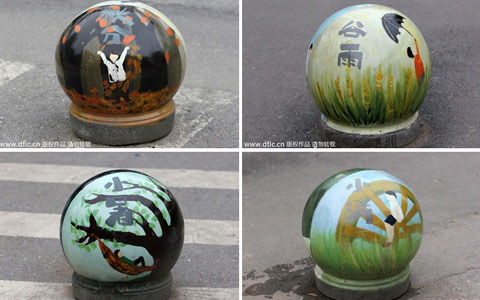Medical workers given insurance as disputes rage on
Updated: 2014-05-08 07:45
By Yan Yiqi in Hangzhou (China Daily)
|
||||||||
Hospitals in Wenling, Zhejiang province, have started buying life insurance for medical staff in the wake of increasingly volatile doctor-patient relationships.
More than 5,000 medical workers in 31 public medical institutions have enrolled in the system since the end of March.
Medical institutions pay 50 to 120 yuan ($8 to $19) every year for each registered member of their medical workers for insurance of up to 800,000 yuan.
Guan Tingyang, Taizhou branch manager of People's Insurance Co of China, said it is considering extending the program to the entire province.
Yu Miaoxiang, deputy director of the city's health bureau, said the insurance will help medical staff work under stressful circumstances.
"Now that doctor-patient disputes are increasing and our medical staff doesn't feel safe working in such an environment, we have to do whatever we can to make them know that we have their backs," Yu said.
Sparking the concern was the stabbing death on Oct 25 of Wang Yunjie, 46, the chief physician in the ear, nose and throat department at the First People's Hospital in Wenling.
The attacker, Lian Enqing, a patient at the hospital, also injured two other doctors in the attack. Lian was sentenced to death on April 1.
Wang's death triggered sit-ins by medical workers in Zhejiang and neighboring Shanghai who called for a safer working environment.
Huang Xitian, deputy director of the Wenling hospital, said that many medical staff members at the hospital expressed their anxiety after the incident.
"We opened a specialized mental clinic for our staff members to relieve their anxiety. They expressed zero tolerance for violence toward them. Some nurses quit their jobs," he said.
Huang said since the disputes cannot be removed entirely, the hospital is making every effort to calm its medical workforce.
"Although the insurance is not a one-size-fits-all solution, it does help to comfort them," he said.
Wang's death led hospitals across the country to beef up their security.
Police have patrolled hospitals in Wenling since December. Monitoring and emergency alarm systems have been installed in key areas, including emergency rooms and intensive care units, where disputes are most likely to occur.
The Ministry of Public Security announced on Oct 31 that three police officers should be provided per 100 medical workers in hospitals around the country.
yanyiqi@chinadaily.com.cn

 Forum trends: Made in China - cheap and inferior?
Forum trends: Made in China - cheap and inferior?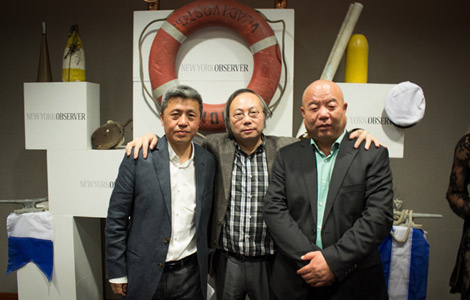
 Chinese artists are part of NY philanthropists' event
Chinese artists are part of NY philanthropists' event
 When a man loves an extremely tall woman
When a man loves an extremely tall woman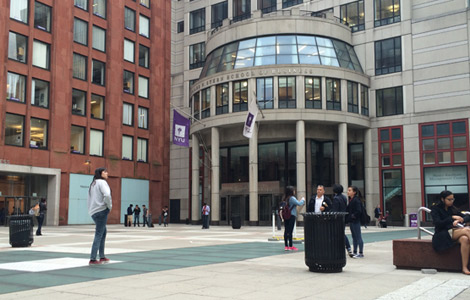
 Chinese enrollments increase for US MBA programs
Chinese enrollments increase for US MBA programs
 World Smile Day special: Grinning animals
World Smile Day special: Grinning animals
 Thai PM Yingluck bids farewell
Thai PM Yingluck bids farewell
 Biggest IPO ever?
Biggest IPO ever?
 Prima ballerina Tan still soars
Prima ballerina Tan still soars
Most Viewed
Editor's Picks

|
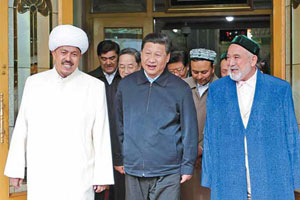
|
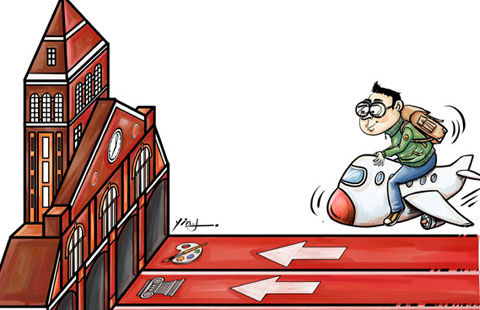
|

|

|

|
Today's Top News
Thailand's new PM seen capable of compromises
China urges Japan to maintain regional peace
Rig is drilling in our waters, Beijing says
Woman detained for leaking secrets
Alibaba joins Amazon's rival
Young Chinese student in spotlight
Swiss banks' move 'to aid graft fight'
Key Sino-Nigerian deals signed
US Weekly

|

|

